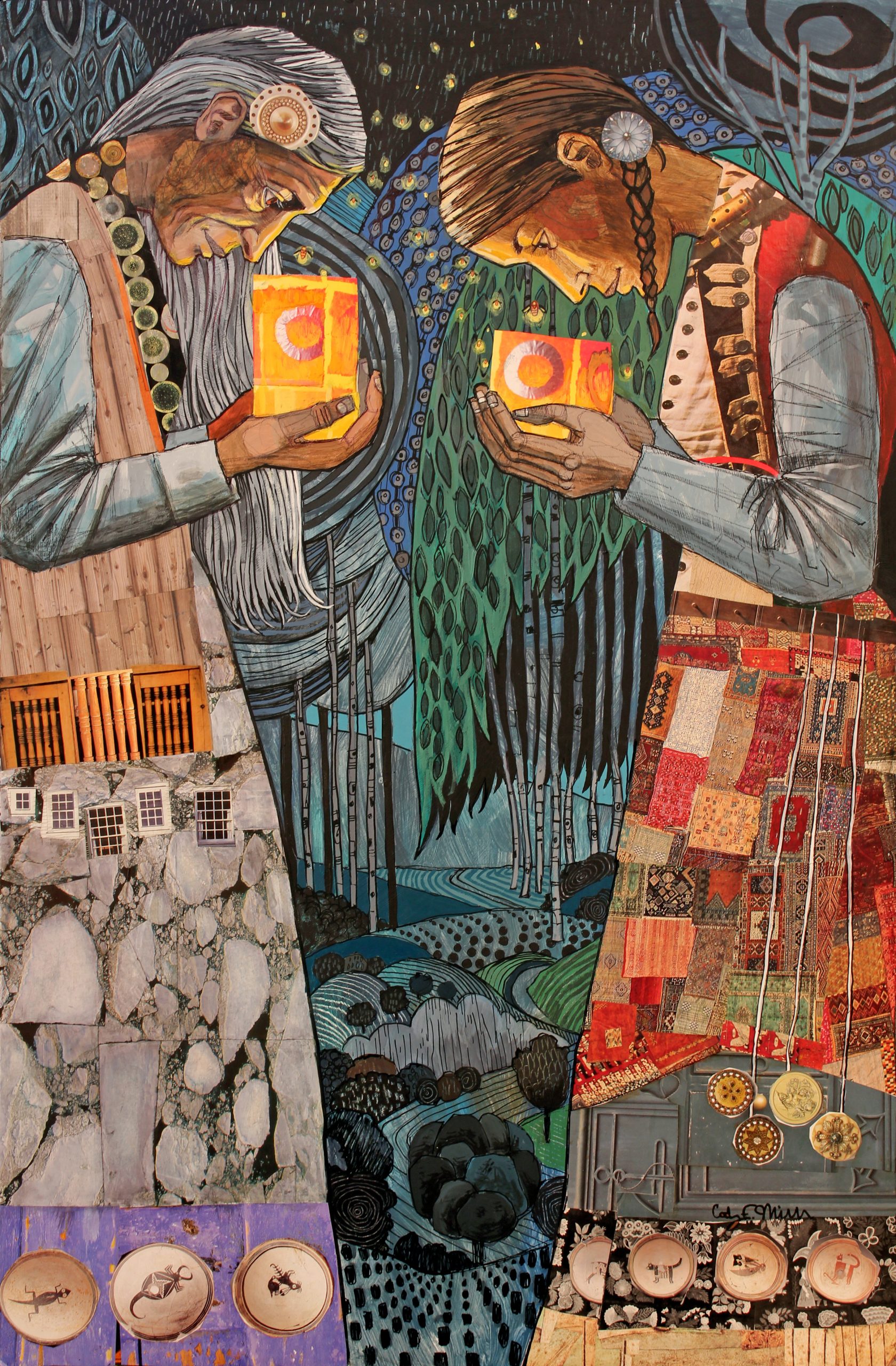What My Grandmothers Taught Me
Lesson Nine

Lesson Nine: What are These Women Doing in a Place Like This?
Primary Scripture: Matthew 1
When I was younger, the things of Scripture often seemed far removed from my own life. Sunday School stories felt as long ago as stories about dinosaurs. Even stories of Jesus, comforting as they were to a shy little girl, seemed to belong to another world that didn’t really touch my own.
The first thing that broke through between the worlds of “biblical then” and “my now” was the stunning notion that God also suffered, and that these heroes of the Bible struggled, argued with God, and complained about their lot in life, just as I did. (Studying Jeremiah, especially his Complaints, began this process; studying the Psalms continued it.) When I began studying biblical narrative as story, with the deep invitation from all good stories for us to enter their world and relate our stories to what happened there, the journey between worlds became a complete overlay. The people I encountered felt so human, with all the flaws and glory of humanity.
As I have worked with Biblical story over the years, I have found the women of Matthew’s genealogy of Jesus (and many others) to be part of my family, a part of myself. They lead us to a Jesus who is not a flat character (“gentle Jesus, meek and mild”), or the perfect Son of God who never even considered doing anything wrong. Rather, they invite us to see a Jesus who was born in an incredibly hard time and place, where life was precarious and death was always waiting for anyone who didn’t keep their head well down (and frequently, even for those who did). In other words, a time like ours, a life like many in my world are currently living.
Even someone like me, who lives in comfort and relative safety, relates easily to a Jesus whose grandmothers had to use their wits to survive because mine did too; whose grandmothers felt ostracized and foreign because mine did too; whose grandmothers stood up for their families, spoke out against injustice, and kept the story of love and connection going because mine did too (and because I try to do that too).
There is a wide, loving inclusiveness to this group of women. When I think about the context of the time Matthew wrote, it is incredible that they are here at all, holding pride of place at the very beginning of his Good News. What if Matthew wrote, not only for the male leaders of the early church communities, but for the women as well? What if these grandmothers were included in this genealogy to give courage and voice to the strong women around Matthew who led Christian communities? What if, as is likely, Matthew’s genealogy was done almost in code, to get around the prevailing view that women should be subservient?
It is difficult to read the stories of Tamar, Rahab, Ruth, Bathsheba, and Mary, return to Matthew’s placement of them at the beginning of his Gospel, and not fully support women’s place in the church. It is true, as many male (and some female) scholars have argued, that the main thing these women did was bear male children. However, their motherhood is not the reason their stories are told. All the people in the Bible (including those in Matthew 1 and everywhere else, for that matter!) were born to women, but the courage, intelligence, loyalty, and commitment to the ongoing family of these women make them more notable. They display a leadership—perhaps not the upfront, out-there-style of leadership often meant by the term—but a leadership that demonstrates how to live with grace and steadfastness through the ordinary hardships of a faithful life.
I aspire to be such a grandmother to my daughters and granddaughters in faith. I will fail from time to time, as will we all, but the memory of the stories of Tamar, Rahab, Ruth, Bathsheba, and Mary is a gift in my heart to keep me aspiring to the goal. Blessings on your similar aspirations and may the grandmothers of your faith journeys continue to give you strength, courage, grace, and wisdom. Amen.
Merryl L. Blair
author of the 2021-2022 PW/Horizons Bible Study
******
Purchase a What My Grandmothers Taught Me bible study book and study along with us.
Call 800/533-4371 and order product #HZN21100 or order online
